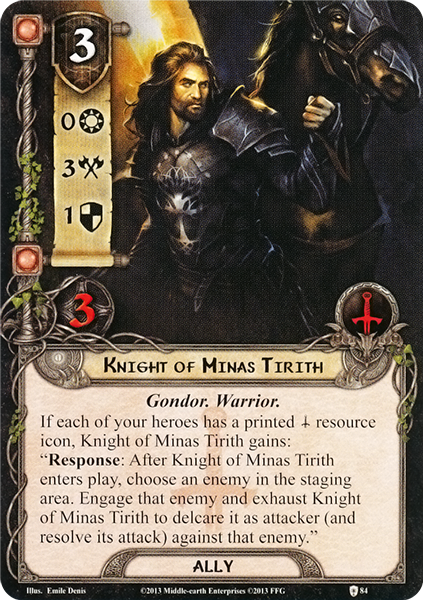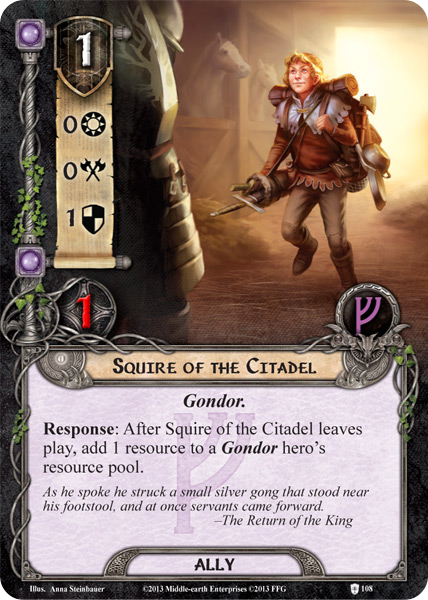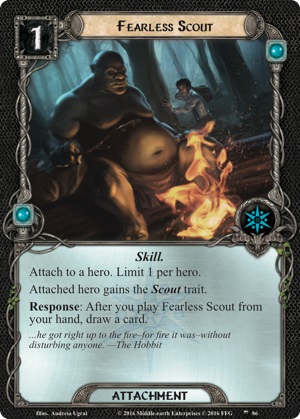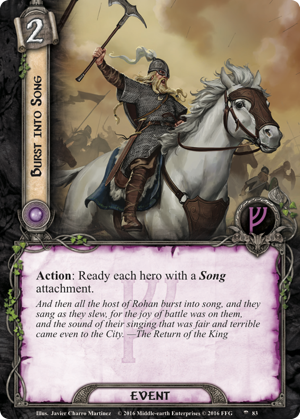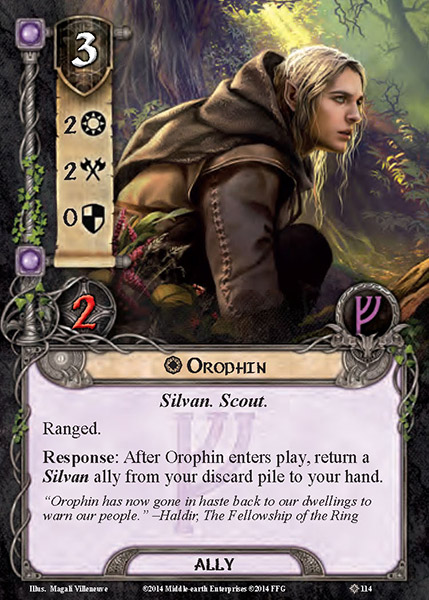First review for this card. Orophin is a versatile ally and one of the rare Silvans to target and interact with an ally card that is not in the hand but in the discard pile. There are three types of allies that he will likely bring back :
1) A Silvan ally who was the victim of a treachery during the staging step (for example Galadriel's Handmaiden), or an ally whose main interest lies in his entry effect and which we had to use as a chump-blocker (but which we could benefit from replaying in order to benefit from its entry effect), for example Galadhrim Minstrel.
2) Silvan Refugee if an ally left the game before being able to use Silvan Refugee with The Tree People, or in case this event was triggered with Silvan Refugee while another Silvan Refugee was in play.
3) A Sylvain ally useful in combat but who did not survive a previous attack (for example Greenwood Defender). Furthermore, not only is Orophin from the same sphere as Thranduil, but he can also serve as a transmission belt for it : Orophin returns an ally from the discard to hand, then Thranduil plays it during the combat phase, depending on the needs of the moment.
The ideal conditions and terms for playing Orophin :
